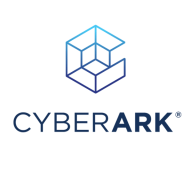

LastPass Business and CyberArk Identity are major contenders in the identity management sector. LastPass Business stands out due to its reasonable pricing and support services, whereas CyberArk Identity shines in its comprehensive features, which some may find justify its higher cost.
Features:LastPass Business offers strong password management, multi-factor authentication, and centralized admin controls. CyberArk Identity provides extensive identity management solutions, including privileged account security, adaptive authentication, and single sign-on capabilities.
Room for Improvement:LastPass Business could improve in integrating with more diverse enterprise systems, providing more granular access controls, and enhancing its reporting tools. CyberArk Identity might work on simplifying its user interface, reducing deployment complexity, and offering more out-of-the-box integrations.
Ease of Deployment and Customer Service:LastPass Business is noted for its easy deployment and effective customer support, making it a user-friendly option. CyberArk Identity, while offering excellent customer service for complex scenarios, has a more challenging deployment process which may require technical expertise.
Pricing and ROI:LastPass Business is known for its low setup costs and faster ROI, thanks to its competitive pricing structure. CyberArk Identity, though more expensive, provides significant ROI for organizations requiring advanced identity management capabilities, balancing cost with enriched features.
I have seen over 30% return on investment due to the improvement in operational efficiencies through automation, which enhances productivity.
They resolved the problem immediately after I reported it, on the same day, within one hour.
They respond immediately when requests are raised, and they are always available for priority one tickets.
I received prompt responses and support, which I would rate as very good.
We can use it on different phones and computers, demonstrating its scalability.
When delving deep into the concepts, there is a lot to address and learn, especially when facing real-time scenarios.
You can scale it out pretty easily, and you can implement it very small.
We no longer have our data infiltrated by unauthorized persons, and tracking actions within the system has become very easy.
When you have it in the cloud, you have CyberArk every time you need it.
With a stable network, due to the redundant data centers across the globe, it is a lot easier to use as a SaaS solution.
It would be helpful if they released a generalized document for processes such as migration.
Integration or deployment is extremely difficult for CyberArk Identity.
There's a need to enhance network performance.
Regarding pricing, it can be quite a lot for small companies.
The pricing is acceptable.
If I am not going fully cloud, there are additional resources I will need to purchase, such as spinning more VMs or acquiring an HSM device to encrypt the vault.
It impacts zero trust security strategies. It prevents lateral movements in the organization.
The two-factor authentication is very important, but the fact that every account is being regenerated every time we use it is the most important security feature for us.
It is the most powerful access management system.
| Product | Market Share (%) |
|---|---|
| CyberArk Identity | 1.1% |
| LastPass Business | 3.1% |
| Other | 95.8% |

| Company Size | Count |
|---|---|
| Small Business | 20 |
| Midsize Enterprise | 4 |
| Large Enterprise | 10 |
| Company Size | Count |
|---|---|
| Small Business | 8 |
| Large Enterprise | 7 |
CyberArk Identity is a versatile identity management solution suitable for a wide range of enterprises. It is designed to enhance enterprise security and improve user experience. Its focus on security, compliance, and operational efficiency, combined with positive user feedback, makes it a strong contender in the identity management space.
CyberArk Identity offers a robust suite of features to manage user identities and access privileges. It focuses on securing access to resources across various environments, including cloud and on-premises applications. Its capabilities include single sign-on (SSO), multi-factor authentication (MFA), lifecycle management, and privileged access management. These features are engineered to streamline access control, enhance security, and ensure compliance with regulatory standards.
According to our user interviews, CyberArk Identity is praised for its reliability and user-friendly interface. IT professionals highlight the ease of integration with existing systems, while business executives appreciate the visibility it provides into access and identity management across the organization. Users also commend the responsive customer support, which is crucial for enterprise-level solutions.
IT Professionals found that CyberArk Identity's focus on multi-layered security significantly reduced the risk of data breaches and unauthorized access. With a centralized dashboard and automation features, you can streamline identity and access management tasks, saving time and reducing complexity. Finally, it helps meet various compliance requirements.
LastPass Business enhances enterprise security with features like password sharing, user deactivation, and login control. Integrated with Active Directory, it ensures password management through a security dashboard, multifactor authentication, and YubiKey support.
LastPass Business provides comprehensive password management by supporting secure storage, shared folders, and master passwords for streamlined access. With an enterprise admin console and robust reporting tools, it efficiently manages credentials. It supports secure storage for procedures and notes, crucial for IT departments. Improvement areas include group inheritance, admin capabilities, and automated password rotation. Issues like URL recognition, plugin stability, and user access reporting need addressing. Enhancements in mobile app navigation and technical support are also needed, alongside increased customization and authentication options.
What are the key features of LastPass Business?In specific industries, LastPass Business is implemented as a vital tool for storing and synchronizing encrypted credentials, supporting robust password policies, and facilitating secure access control management. Organizations benefit from storing shared accounts and managing core enterprise admin passwords, promoting higher security standards across users and applications.
We monitor all Enterprise Password Managers reviews to prevent fraudulent reviews and keep review quality high. We do not post reviews by company employees or direct competitors. We validate each review for authenticity via cross-reference with LinkedIn, and personal follow-up with the reviewer when necessary.